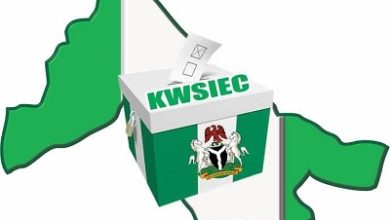As election observers turn in their reports

Save for election petitions which are many, the 2019 elections have
come and gone. However, there is a tiny little but important detail
that is coming up. That is the report of observers-especially
international observers. Chief among the international observers are
the delegations or missions of the European Union (EU) Election
Observation Mission, the Nigeria International Election Observation,
Mission of the National Democratic Institute, NDI and the
International Republican Institute, IRI mission. The last two groups
however, combined to issue an interim report. In all, their reports
say that the elections fell short of expectation. This verdict appears
in line with the current outrage among the political class over the
systemic failings seen in the elections, and the relatively low levels
of voter turnout.
Specifically, the EU EOM concluded the elections were marked by severe
operational and transparency shortcomings, electoral security problems
and low turnout. It said the elections became increasingly marred by
violence and intimidation, with the role of security agencies becoming
more contentious. Similarly, the NDI/IRI observation mission concluded
that 2019 elections did not meet the expectations of many Nigerians
and that the last minute postponement of the presidential and National
Assembly elections on the morning of February 16 and delays in opening
some polling units and other administrative challenges on February 23
undermined public confidence in the Independent National Electoral
Commission, INEC as an electoral umpire.
The report added that while INEC distributed materials and polls in a
more timely election fashion for the March 9 gubernatorial and State
House of Assembly elections, many serious irregularities occurred,
including vote buying, intimidation of voters and election officials,
and election-related violence. But considering the fact that INEC
worked in a difficult environment, it also made some improvements such
as simplifying voting procedures. But various legal shortcomings
remained in relation to the use of smart card readers. The observers,
however, made certain recommendations which they believe, if taken
into consideration, and adhered to, could help improve the conduct of
future elections. Not only the 2023 general elections but the
Governorship elections coming up in Bayelsa and Kogi States in
November 2019.
We hereby call on INEC, the National Assembly, politicians and other
stakeholders to do well to study the reports and subsequent ones, with
a view to addressing the challenges identified in the conduct of the
last general elections. Two common recommendations of both groups are
the need for the INEC to commence early preparations for election as
well as the need for what they call a national Dialogue. The national
dialogue they say should focus attention on the country’s efforts
towards entrenching the principles and practices of democracy.
We believe that the glaring difficulties identified in the last
general election by observers and other stakeholders should be part of
the fundamental electoral reform to be put in place as the nation
begins preparations for the 2023 and other elections. It should also
form the basis for the proposed national conversation on this all
important subject. Such a dialogue must also be made to put in place
modalities that will strengthen INEC’s procedures and processes as
they relate to the collation of results so as to improve integrity,
credibility and confidence in the electoral outcomes, while also
looking at how to establish requirements in law for full transparency
with data easily accessible to the public.
Some of the many ways to bring accountability to the process is
through a credible census, punitive measures against election rigging
and violence (in a way that beneficiaries of electoral crime lose
their seats and banned for a number of years) and independent security
personnel. It is also pertinent, in our view, that any future
consideration of the electoral process should contain ways to
strengthen INEC’s organizational and operational capacity, as well as
its internal communication mechanisms. Before Nigeria moves into
another round of general election in 2023, it is important to ensure
that adjustments are made and appropriate legal framework adopted to
achieve a better outing at least two years before 2023. For instance,
the envisaged new legal framework should be designed to enable
electoral tribunals to also cover pre-election cases in order to
improve access to remedy and avoid petitions being taken to different
courts at the same time.
The reports are not supposed to be seen as an indictment or partisan
opportunity for cheap politicking. After all, the reports indicted the
two major parties. It is impossible to observe elections without
noticing areas of possible improvements. We must see the reports as a
proper feedback of actions taken and see to it that improvements occur
for the good and glory of the country. all we want is a fair
opportunity to elect our leaders.





